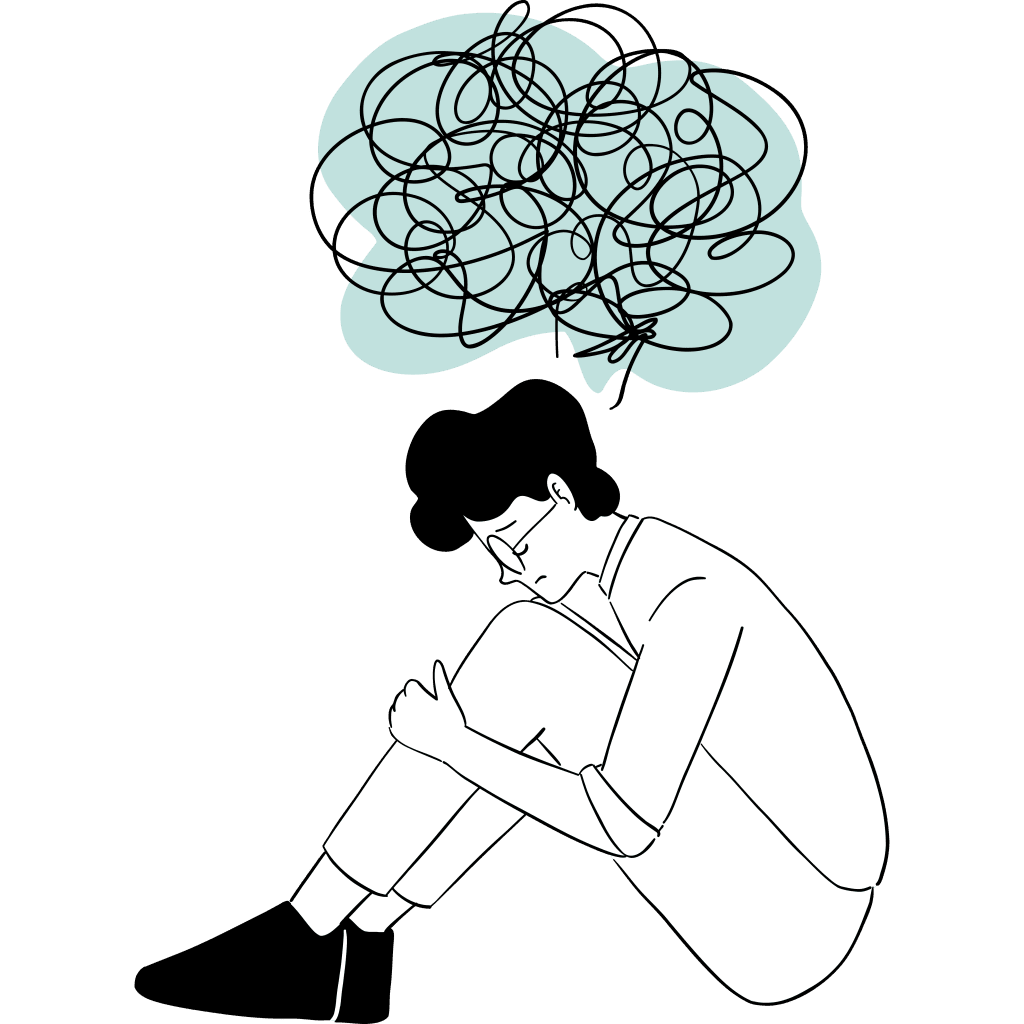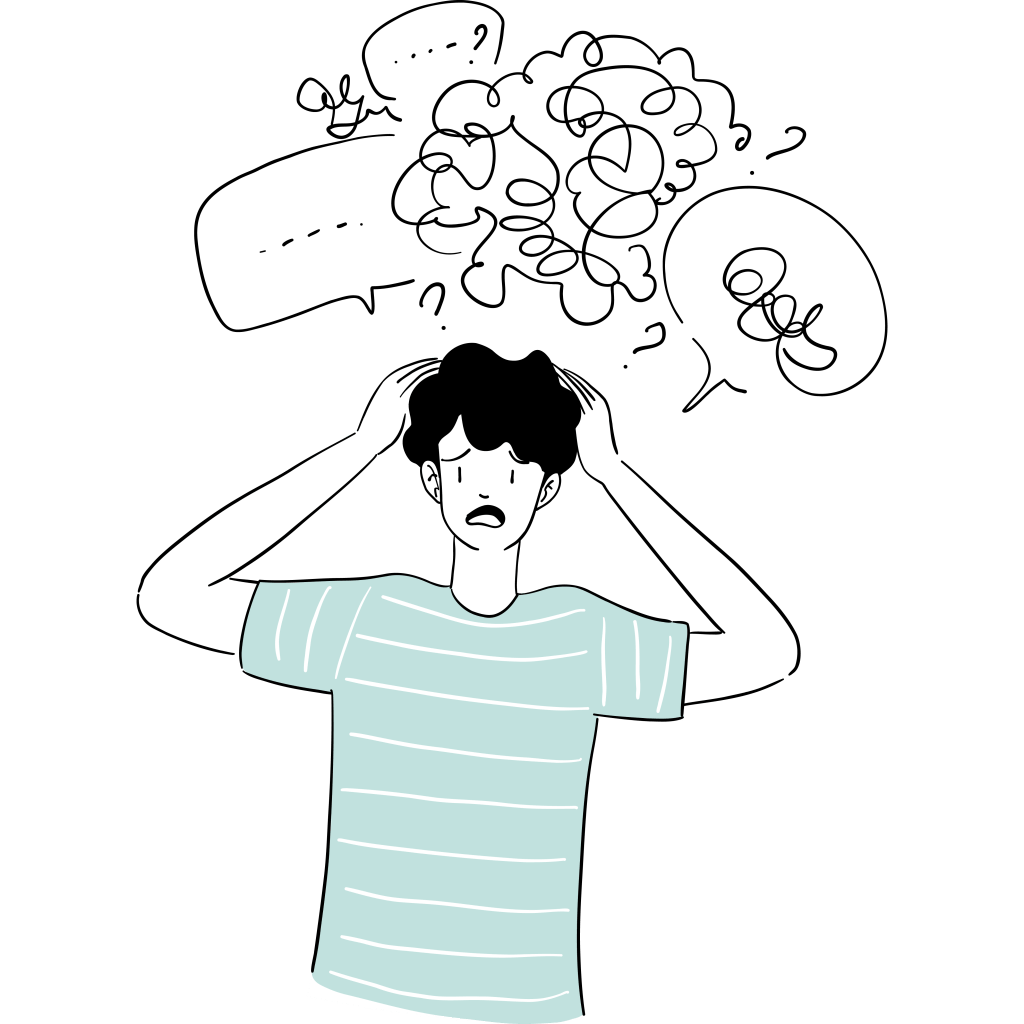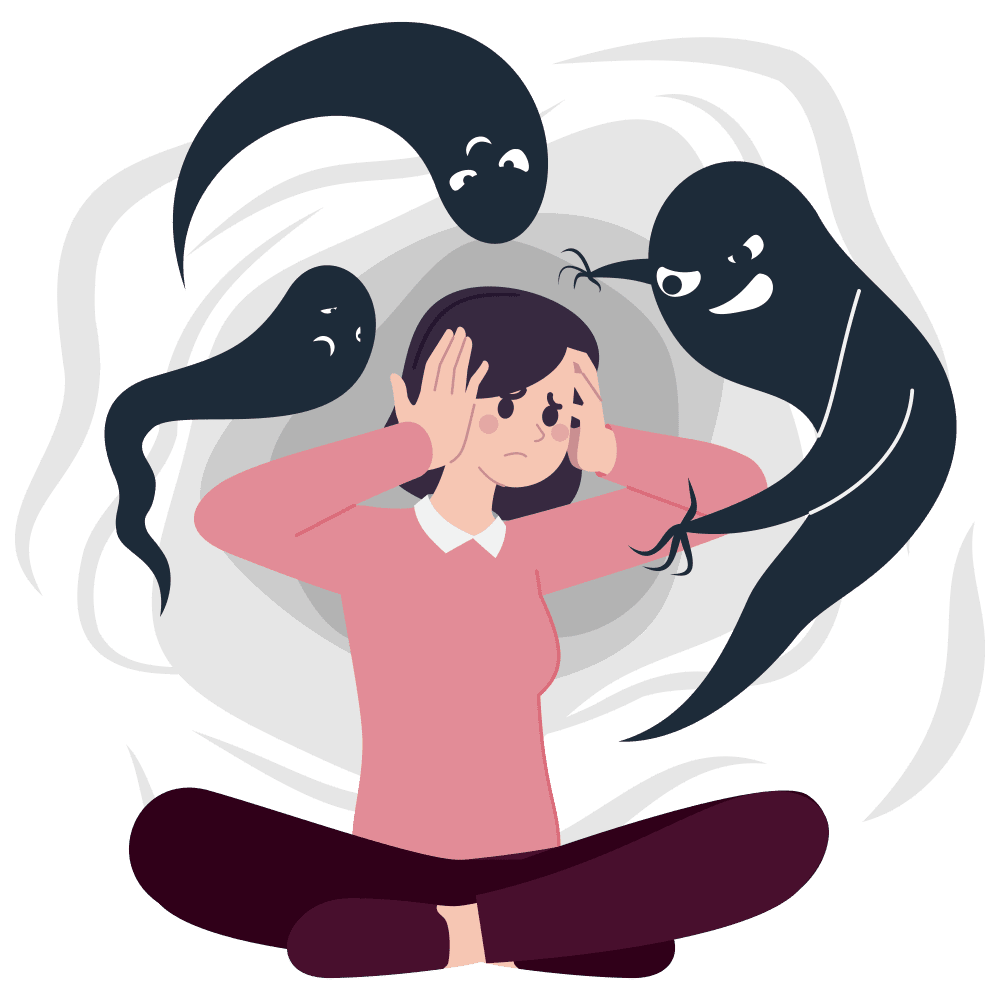What is Worry?
Worry is a universal human emotion, a natural response to stressful situations that often involves concerns about potential future events or outcomes while anxiety and panic attacks can be crippling experiences. Worry is an everyday part of our cognitive functioning, experienced by everyone at some point. Unlike anxiety, worry doesn’t always manifest with significant physical symptoms. It’s a mental process, an essential aspect of how we process information and plan for the future.
What is Anxiety?
Anxiety is a broader emotional state that encompasses excessive and persistent worry, fear, or apprehension. Unlike ordinary worry, anxiety is always accompanied by bodily sensations. These sensations can range from a racing heart and shortness of breath to muscle tension and restlessness. Anxiety affects a person’s thoughts, emotions, and behaviors, leading to a more comprehensive and overwhelming experience than regular worry.
What is the Difference Between Worry and Anxiety?
While worry is a component of anxiety, anxiety represents a heightened state of worry that interferes significantly with daily functioning and well-being. The key difference lies in the intensity and the physical manifestation of symptoms. Worry is a mental process, whereas anxiety includes both mental and physiological responses, making it a more complex emotional state.
What is a Panic Attack? Understanding the Fight or Flight Response and Symptoms

Panic attacks are sudden, intense episodes of fear that trigger severe physical and psychological reactions. These episodes are closely connected to anxiety and often stem from a perceived threat, even in the absence of real danger. During a panic attack, the body’s fight or flight response is activated, releasing stress hormones and preparing the body to confront or flee from the threat. Symptoms can include rapid heartbeat, chest pain, shortness of breath, trembling, dizziness, and a sense of impending doom. This escalation from anxiety to panic attacks highlights the profound connection between the mind and body in anxiety-related conditions.
Coping Strategies for Anxiety and Panic Attacks
When dealing with anxiety and panic attacks, there are several effective coping strategies one can employ. Deep breathing exercises, mindfulness meditation, and progressive muscle relaxation can help manage both the mental and physical symptoms. Grounding techniques, such as focusing on the senses, can bring individuals back to the present moment during an anxiety or panic attack. Developing a support network, avoiding stimulants like caffeine, and practicing self-compassion are also valuable strategies in managing these conditions.
Treatments for Anxiety and Panic Attacks: The Role of Cognitive Behavioral Therapy (CBT)
Cognitive Behavioral Therapy (CBT) is a widely used therapeutic approach for managing anxiety disorders and panic attacks. CBT helps individuals identify and change negative thought patterns and behaviors, addressing both the mental and physical aspects of anxiety. By teaching effective coping mechanisms and relaxation techniques, CBT empowers individuals to confront their fears and manage anxiety. Exposure therapy, a component of CBT, is particularly effective in treating panic attacks by gradually exposing individuals to their triggers in a controlled and supportive environment.

Life Changes to Improve Mental Well-being
Certain lifestyle changes can significantly reduce the frequency and intensity of anxiety and panic attacks. Regular exercise, sufficient sleep, and a balanced diet contribute to overall mental and physical well-being. Stress management techniques like yoga and meditation can also be beneficial. Setting realistic goals, managing time effectively, and learning to say no can reduce overwhelming feelings and lower anxiety levels, fostering a more peaceful and balanced life.
Thriving with Anxiety: Embracing Acceptance and Support
Living with anxiety challenges individuals, but with the right support and coping strategies, it’s possible to thrive. Acceptance of the condition and oneself, combined with self-compassion, forms the foundation for resilience. Seeking help from mental health professionals and following a personalized treatment plan tailored to one’s needs are crucial steps. It’s also essential to stay connected with supportive relationships, whether they are friends, family, or support groups. By acknowledging the journey and recognizing the progress made, individuals can embrace life fully, even in the face of anxiety.
Conclusion: Embracing the Journey Towards Peace
Understanding the nuances of worry, anxiety and panic attacks empowers individuals to navigate their emotions more effectively. Recognizing the interplay between mental and physical aspects of these conditions provides valuable insights into managing anxiety-related challenges. With the right knowledge, coping strategies, and support, individuals can embrace life with resilience and optimism, finding peace amidst the chaos. By fostering a supportive community and practicing self-compassion, the journey towards managing anxiety becomes not just a battle but an opportunity for personal growth and strength. Remember, in the face of anxiety, you are not alone, and there is hope for a brighter, more peaceful tomorrow.
Ready to begin? Start your online therapy journey today. Book your first session now.




